Disadvantages of fixed deposit: is fixed income a better option?
As the saying goes, “What goes up must come down”. Given that the US Federal Reserve (Fed) has raised interest rates to their highest level since 2007, investors will now look to “when” borrowing costs (or deposit rates) will start to fall. It’s not only the US considering a halt to interest-rate hikes, other central banks are thinking of doing the same.
Though it seems apparent that rates are likely set to fall after aggressive hikes, the task of predicting downward rate movements is made trickier by persistently high inflation and market volatility. Therefore, in an uncertain, higher-for-longer interest-rate environment, some people may be tempted to opt for security by continuing to migrate their assets from bonds or equities into a bank deposit account. After all, “cash is king”.
Or is it?
Defining fixed deposits and fixed income
- What is a Fixed Deposit?
A fixed deposit is a saving instrument that involves depositing a monetary lump sum over a specified period to earn a fixed interest rate. Fixed deposits typically offer a higher rate than saving deposits, and the principal amount is guaranteed, regardless of market fluctuations.
Fixed deposits also offer two different means of payment throughout their tenures – these can be either cumulative or non-cumulative. If the fixed deposit is cumulative, the interest and principal amount will be paid on its maturity date; However, if the fixed deposit is non-cumulative, then the interest and principal will be paid out in specified increments.
- What is Fixed Income?
Fixed income is a broad definition encompassing various investment securities that pay investors fixed interest (or coupon payments) until their maturity dates. Fixed-income investments are generally considered low risk (for example, versus equities) because an issuer promises to repay investors the principal amount with fixed returns unless a credit event occurs (e.g., a coupon payment default). Some examples of fixed-income securities include government or corporate bonds.
The interest on fixed-income securities is generally paid twice a year, with the principal amount repaid on the bond’s maturity date. However, some fixed-income providers may pay interest monthly, quarterly, or annually.
The advantages and disadvantages of fixed deposits
Fixed deposits are generally considered a good saving option when interest rates rise. This is because fixed deposit rates move in tandem with interest rates. As interest rates rise, so do fixed deposit rates. Fixed deposits are also attractive during market fluctuations because of their reliability. Fixed deposits will always deliver the principal amount, despite market fluctuations, which can be attractive when markets are unpredictable.
The disadvantage of fixed deposits
Fixed deposits fail to adjust alongside inflation. Since a fixed deposit offers a set interest rate throughout its tenure, depositors could lose purchasing power when inflation rises above the rate.
Fixed deposits may offer low post-tax returns. Depending on where an investor is investing, taxes may eat into the investment return, eroding your capital when adjusting for inflation.
Most fixed deposits contain withdrawal penalties. You must forgo the accumulated interest if you want to take money out of a fixed deposit.
What happens if interest rates start to fall?
Since April 2023, there’s been a downward revision of some fixed deposit rates1 among regional retail banks and a slower migration to higher-yielding fixed deposit/term deposits. In other words, lenders (and some investors) believe that the prospect of a slowdown in the US, coupled with lower inflation, will see interest rates start to fall and are positioning themselves accordingly.
If this happens, cash investors potentially face the risk of lower yields when their fixed deposits mature. On the flip side, declining deposit rates can help boost the allure of asset classes, such as fixed income.
Why is fixed income now a potentially better option than fixed deposits?
While fixed-income returns have varied from year to year, they’ve compounded over the longer term to reach levels that potentially beat inflation and are higher than the current nominal rates for time deposits. Closer to home, Asian bonds (sovereign and corporate) have traditionally enjoyed higher yields than their US counterparts.
When is a good entry point for fixed income?
Generally, when we approach the peak of a rate-hiking cycle, most bond yields will reach relatively attractive (high) levels, meaning further yield increases are limited. Hence, investors who consider entering the bond markets can take advantage of the re-priced bond prices (prices are lower due to yield surge) while clipping the higher yield return. As a result,bond holders could enjoy price appreciation once bond prices rebound alongside the rate-cutting cycle – generating total returns via higher yields and price increases and hence maximising total returns.
Evergreen tips for fixed-income investors
If you opt to remain invested in bonds or consider an allocation to this asset class, a few tips could prove helpful.
- Spreading Risk
Should you invest in a single bond or a fixed-income fund? Placing all your eggs in one basket may not be prudent, especially if you’re a retail investor. The typical amount invested in an Asian US-dollar (USD) bond is USD200,000, a significant sum that could represent your entire life savings. This money would be at risk if the bond defaults.
Conversely, investing in fixed income via a mutual fund can offer diversification benefits, as a typical vehicle may have 100+ bond holdings, with some containing up to 150 to 200. That’s spreading your eggs over many baskets.
- Rebalancing your portfolio with age
Then there’s the question of how much of your overall investment pot you should expose to fixed income. The general rule of thumb is that an investor’s bond holdings should equal their age. For example, if you’re 30 years old, you should have around 30% of your portfolio invested in fixed income and 70% in equities. The allocation to fixed income should grow in tandem with your age.
We have just mentioned equities, and a point to note is that investors should not expect equity-like returns from fixed income.
- Capital protection
What can fixed-income hedge against? Besides income generation and the compounding effects mentioned above, another potential benefit of fixed-income investing is that bonds can preserve capital and protect against economic downturns. Bonds are typically less volatile than stocks and offer a source of diversification that can help reduce volatility and overall portfolio risk.
- Gathering momentum over time
Lastly, let time be your friend! The earlier you put your money to work, the more time it has to accumulate. For example, some fixed-income funds pay a more regular income than deposits due to their distribution schedule, e.g., monthly or quarterly. This could even boost your income as more interest is compounded over time.
If you want to know more information, please feel free to contact me.
WhatsApp: 65-90088276.
Important: The information and opinions in this article are for general information purposes only. They should not be relied on as professional financial advice. Readers should seek unbiased financial advice that is customised to their specific financial objectives, situations & needs. This advertisement or publication has not been reviewed by the Monetary Authority of Singapore.

Published By:
JolysseWu 邬宇思
A Little about me:
Hi, I’m Jolysse. Thank you for visiting my website and I’m looking forward to getting to know you personally.
I’m an independent financial consult and strive towards helping my clients and their families to accumulate wealth and helping them grow their investment portfolios.
您好。我是宇思,您也可以叫我Jolysse。
我是一名具有10年财富管理经验的理财顾问,TOT\COT百万圆桌会员,金融学&管理学双学士,先后服务过近千个客户,个人美股及衍生品投资最高年化收益率达366%。在信息爆炸的时代,为您用中立、专业、挑剔的眼光去选择最合适您的理财方案!
一对一咨询,请点击

CONTACT US
- 150 Beach Road #12-01/08, Gateway West Singapore 189720
- +65 62221889
- +65 62221019
- feedback@fa.com.sg
